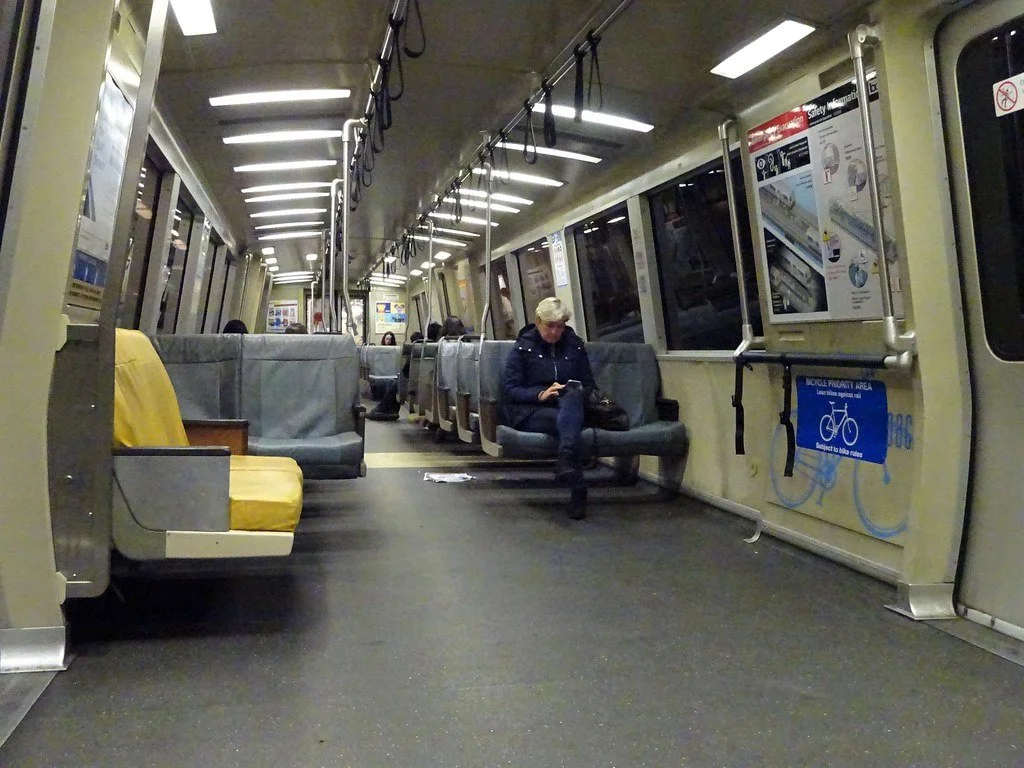☆ How to stop the absurd BART extension to DTSJ
Image by Harry_nl on Flickr
Even the Merc is coming around and questioning the SJ BART extension, pointing to various factors: VTA's lack of transparency on careening costs and “definitely there” funding, bleak ridership projections, and the need for independent reviewers to determine if the project is even worthwhile. In this updated Opp Now exclusive, the Cato Institute's Marc Joffe analyzes how the extension would most likely have to be stopped by the Federal Transit Administration (FTA).
If a local group wanted to stop the project, probably its best option would be to place a measure on the 2024 ballot repealing some or all of the previously ratified sales taxes. The state constitution protects the right of voters to initiate such repeal campaigns, but the cost of qualifying a measure for the ballot is steep.
In Santa Clara County, a citizen-initiated ballot measure would require 54,190 valid signatures (which is one-tenth of the total votes cast for governor in the last election). Getting that number of signatures (plus a buffer for invalid signatures) would require many hours of volunteer time or hundreds of thousands of dollars for paid signature gatherers who may charge anywhere from $2 to $20 per signature.
One might think that applying pressure to VTA directors might be an option, but this approach does not seem promising. Directors are appointed rather than elected and are thus not directly accountable to voters. Instead, they are more likely to be influenced by the transit advocates and construction industry interests who want to see this project go forward irrespective of its costs and benefits.
Probably the biggest risk facing the Phase II Silicon Valley extension is a failure to win final federal approval. The Biden Administration clearly wants this project, as witnessed by the fact that the president’s budget includes $500 million specifically for it. Of course, presidential budgets are normally “dead on arrival,” and the Republican-led House is unlikely to approve funding for a project Speaker Kevin McCarthy derisively called “Nancy Pelosi’s subway”.
If the Federal Transit Administration (FTA) receives no special funding for the BART extension, it will have to weigh the project against others competing for federal funds available from the bipartisan infrastructure law and previous legislation.
For this reason, project advocates were dismayed that the FTA reduced projected daily ridership from the 52,000 calculated by VTA to just 32,900, which is still too high given the dismal ridership numbers we have seen at Berryessa and Milpitas. Still, the FTA’s more conservative estimate impacts the “Project Justification Rating,” the agency assigned to the project, because that rating considers both the number of transit trips and costs per passenger. As of its latest update, FTA has given the BART extension a “Medium” Project Justification Rating, which is the third highest of five possible ratings.
That said, FTA assigns the project an Overall Project Rating of “Medium-High”, which is the second highest point on its scale, suggesting that a positive funding decision remains likely. Congress might be able to sway the Administration through hearings: if members generated enough doubt about the ridership calculations or other project assumptions, perhaps the federal funding would go elsewhere.
Planners have been working toward the Phase II extension for a long time, and their efforts appear to be close to fruition. While it is understandable that they would want to see this project through given the time and effort they have invested in it, moving forward is not the right decision for the local, state, and federal taxpayers who are funding a transit extension that no longer makes sense.
Follow Opportunity Now on Twitter @svopportunity
Opp Now enthusiastically welcomes smart, thoughtful, fair-minded, well-written comments from our readers. But be advised: we have zero interest in posting rants, ad hominems, poorly-argued screeds, transparently partisan yack, or the hateful name-calling often seen on other local websites. So if you've got a great idea that will add to the conversation, please send it in. If you're trolling or shilling for a candidate or initiative, forget it.

